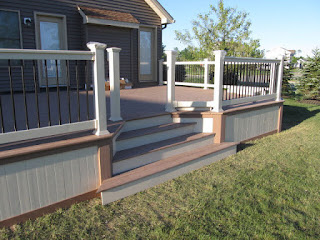How to Know if Your Fence Needs Repairs in Boise, ID
If your FENCING COMPANY does a good job of INSTALLING YOUR FENCE, you likely won't need repairs for some time. The majority of materials used for RESIDENTIAL and COMMERCIAL FENCES are used specifically for their durability and longevity. However, as your fence ages, you may slowly begin to notice signs that all may not be well; while some sun damage and roughening of materials is natural and may not affect the integrity of the fence, older fences will show clear signs when it's time for a repair. Today, we'll discuss four signs you can spot by a quick do-it-yourself inspection that are a clear indication that it's time for a FENCE REPAIR.
- Physical Damage: the most obvious sign; if a storm, broken tree branch, or other accident has damaged a section of your fence, the security of your fence has very clearly been compromised. Sections of WROUGHT IRON or DECORATIVE ALUMINUM FENCING can be damaged by dramatic incidents, and CHAIN LINK FENCES can slowly be bent out of shape by growing trees. Outside of the negative aesthetic impact of a damaged fence, this can create issues with keeping pets or kids in the yard, and depending on the damage, can increase the risk of further damage as gravity pulls on disturbed sections of fence.
- Leaning, Swaying Fence: this is a slightly more subtle sign, because it often happens slowly over a long time. You may not notice if you don't think to look for it, but a fence that begins to lean in one direction or begins to shake in the wind could collapse in the near future. Our experts at Certified Fencing can evaluate your fence and strengthen concrete fence posts or replace rotten or weakened posts. We can also replace larger sections of fence when necessary.
- Moisture and Dry Rot in Wood: if your CEDAR WOOD FENCE was installed correctly, you'll notice that the slats don't touch the ground. Even with the naturally mold-resistant properties of cedar, constant contact with moisture from the ground can lead to rot. As time goes on, soil could accumulate at the base of a fence, and the constant contact can cause discoloration, mold, and mildew that can spread across the fence. Periodically checking your fence for these problems can prevent spreading and save you from having to replace the entire fence!
- Infestation: fencing materials are treated to prevent bugs from burrowing and nesting in them, but the older a fence gets, the more likely it is for these barriers to wear down with natural weathering. Keep an eye out for little bugs crawling or flying around your fence; in wooden fences, look for tiny holes, muddy material on surfaces, and buckling paint. Bugs are unpleasant to deal with on a good day, so noticing these issues early can save you a much bigger problem down the road.
Whether your fence has minor problems or a bigger issue, Certified Fencing is an expert in the Boise, ID area ready to answer any questions or provide information related to anything related to fencing. Give us a call at (208) 449-2040 today for all of your fencing needs!


Comments
Post a Comment